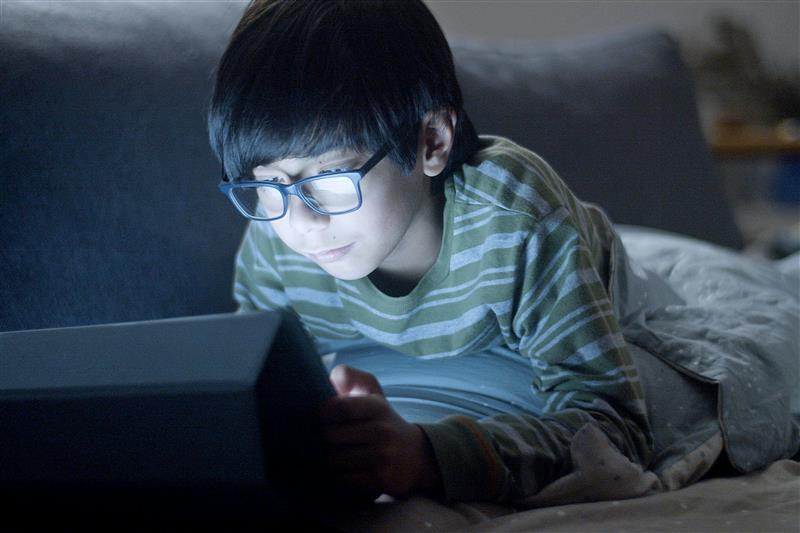Children today spend more time online than ever before. While technology offers many benefits, excessive screen time poses risks. Parents must take proactive steps to ensure their kids stay safe online.
Why Monitoring Kids’ Screen Time Matters
Too much screen time affects mental and physical health. Children exposed to excessive digital content may experience negative effects. Monitoring online activity helps create a safe and balanced environment.
Risks of Unregulated Screen Time
Unrestricted digital access leads to various concerns. Parents should be aware of these risks:
- Cyberbullying: Online interactions can expose kids to harassment.
- Inappropriate Content: The internet hosts unfiltered material unsuitable for children.
- Sleep Disruptions: Excessive screen time interferes with rest.
- Reduced Social Skills: Too much online interaction weakens real-world communication.
Limiting and tracking online activity helps prevent these issues.
Online Safety: Monitoring Kids’ Screen Time Effectively
Managing digital usage requires the right strategies. Parents need clear guidelines to ensure responsible online behavior.
Set Clear Screen Time Rules
Establishing boundaries helps maintain balance. Consider these guidelines:
- Create screen-free zones, like bedrooms and family meals.
- Limit usage to specific hours to avoid late-night browsing.
- Encourage breaks to reduce eye strain and fatigue.
Using parental controls adds an extra layer of protection.
Use Parental Control Apps
Technology offers solutions for tracking and managing screen time. The best parental control features include:
- Website filtering to block harmful content.
- Time restrictions ensuring balanced digital habits.
- Activity tracking for real-time insights into usage patterns.
Reliable tools give parents peace of mind.
How Excessive Screen Time Affects Kids
Spending too much time online impacts development. Children require balanced activities for healthy growth.
Cognitive Development Risks
Overuse of screens affects learning abilities. Studies show excessive exposure leads to:
- Shorter attention spans due to rapid content consumption.
- Reduced problem-solving skills from passive engagement.
- Lower academic performance caused by distractions.
Encouraging offline activities helps maintain mental sharpness.
Physical Health Concerns
Screen addiction affects physical well-being. Kids who overuse devices may experience:
- Poor posture leading to long-term back problems.
- Increased obesity risks due to sedentary habits.
- Eye strain from prolonged exposure to blue light.
Encouraging movement and outdoor play balances screen time.
Best Practices for Online Safety: Monitoring Kids’ Screen Time
Establishing safe online habits starts with education. Parents should teach children about responsible digital behavior.
Encourage Open Communication
Talking to kids about online safety builds trust. Keep these tips in mind:
- Discuss potential dangers like cyberbullying and privacy risks.
- Teach responsible sharing to protect personal information.
- Set consequences for breaking online rules.
An open dialogue helps children feel comfortable reporting concerns.
Supervise Online Activity Without Spying
Monitoring should feel supportive, not invasive. Parents can:
- Use family accounts to oversee online interactions.
- Check browsing history for signs of risky behavior.
- Encourage transparency by discussing internet use regularly.
Balancing supervision with trust creates a healthier digital environment.
Choosing the Right Tools for Monitoring Screen Time
Technology makes digital parenting easier. Selecting the right monitoring tools enhances safety and control.
Features to Look For
The best solutions offer comprehensive protection. Parents should look for:
- Customizable settings for different age groups.
- Remote access for real-time adjustments.
- Detailed reports on screen time and app usage.
Online Safety: Monitoring Kids’ Screen Time and Encouraging Healthy Digital Habits
Balanced technology use improves well-being. Children benefit from structured screen time rules.
| Best Practices | Benefits |
| Limit screen time | Encourages physical activity |
| Use parental controls | Blocks harmful content |
| Promote digital detox | Reduces stress and anxiety |
| Encourage hobbies | Develops new skills |
Establishing these habits creates a safer, healthier online experience.
Final Thoughts: Take Control of Screen Time
Digital safety starts with awareness. Understanding the risks of excessive screen time helps parents make informed decisions. The right tools and strategies create a balanced digital experience.
Don’t wait for problems to arise—take control today with expert cybersecurity solutions.


